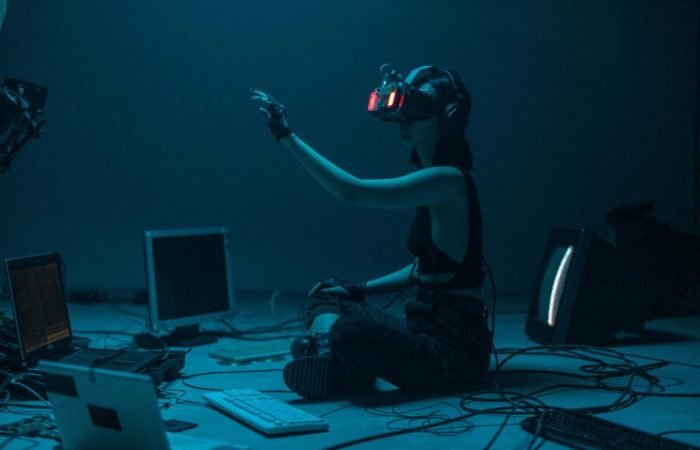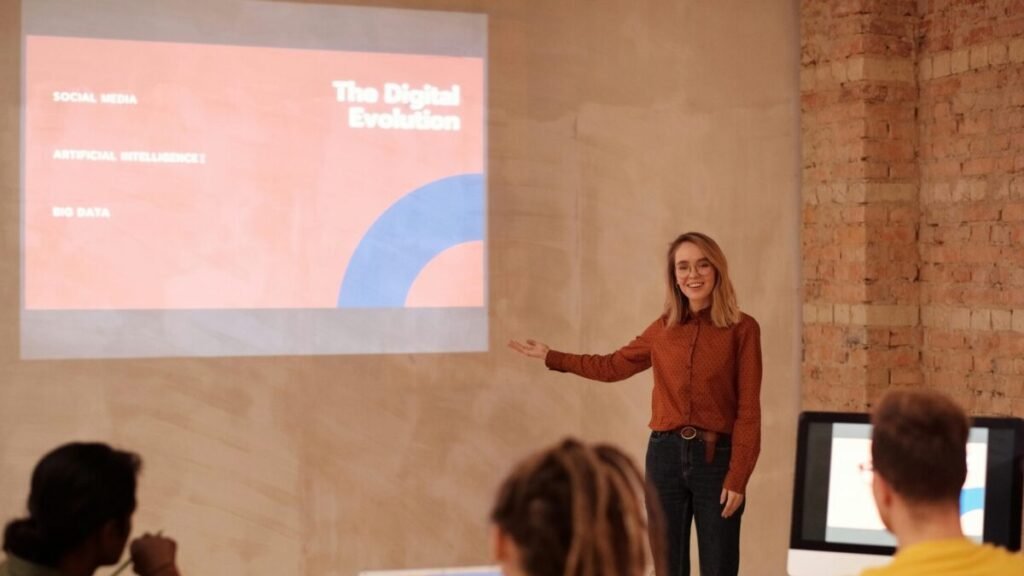
How AI is Transforming Every day Life in 2025
Artificial Intelligence (AI) is no longer just for tech companies or futuristic labs. In 2025, it has become a natural part of our daily routines — shaping the way we work, learn, travel, and even relax. Whether you’re unlocking your phone with your face, talking to a voice assistant, or getting tailored recommendations on Netflix, you’re already interacting with AI every single day.
Let’s explore how AI is transforming everyday life in 2025, with real-life examples showing just how much this invisible technology influences our world.
1. Personalized Experiences at Your Fingertips
AI personalization has reached an incredible level in 2025. Platforms like Netflix, Spotify, and TikTok use algorithms that learn from your behavior — your clicks, pauses, and likes — to recommend exactly what fits your mood.
Example:
Sofia, a high school teacher, listens to Spotify during her daily commute. Over time, her “Daily Mix” automatically adjusts — upbeat songs in the morning, and calming jazz in the evening — all thanks to AI analyzing her habits.
Where it’s used daily:
• Streaming apps (Netflix, YouTube, Spotify)
• Online shopping (Amazon, eBay)
• Social media feeds (Instagram Reels, TikTok, Facebook)
These algorithms don’t just guess — they continuously learn, offering you a personalized experience that saves time and keeps you engaged.
2. AI Assistants That Actually Assist
Voice assistants like Siri, Alexa, Google Assistant, and even ChatGPT voice have evolved beyond basic tasks. They now help manage our entire day.
In 2025, AI assistants can:
• Schedule meetings and reminders
• Write emails or texts
• Translate languages in real time
• Suggest grocery lists or recipes
• Draft business proposals or blog posts
Example:
Sam, a freelance designer, starts his day with, “Hey Siri, what’s on my calendar?” Within seconds, Siri provides a summary of his day, suggests an optimal lunch break, and reminds him of a pending invoice — all powered by AI scheduling and predictive data.
These assistants are becoming true personal helpers — saving us hours of manual planning every week.
3. Smarter Health Monitoring
One of AI’s biggest impacts is in healthcare and wellness. Smart devices no longer just count your steps — they now track your overall health in real time.
In 2025, smartwatches and wearables can detect:
• Irregular heartbeats
• Blood oxygen levels
• Stress indicators
• Sleep quality and patterns
• Early signs of illness
Example:
James, a 40-year-old father, gets an alert from his smartwatch about an unusual heart rhythm. A quick doctor’s visit — powered by AI-assisted diagnostic tools — reveals an early-stage condition that’s easily treatable. AI literally saves lives by spotting issues before symptoms appear.
Hospitals and clinics now use AI to analyze X-rays, monitor recovery progress, and suggest personalized treatment plans. It’s faster, more accurate, and saves time for both patients and professionals.
4. Smarter and Safer Transportation
Transportation is another area where AI shines. From self-driving vehicles to predictive navigation, AI is reshaping how we move.
Here’s where AI is helping:
• Self-driving cars (Tesla, Waymo, Baidu)
• Ride-sharing with route optimization
• Smart traffic light systems
• Real-time accident prevention alerts
Example:
Maria uses an AI-powered ride-share service. Her car adjusts its route instantly to avoid a traffic jam caused by an accident — no manual input required.
Even traditional driving apps like Google Maps or Waze use AI to calculate faster routes, estimate arrival times, and avoid congestion. As AI continues to evolve, our roads become safer and travel becomes more efficient.
5. Smarter Homes and Connected Devices
Imagine walking into your house and the lights turn on, the temperature adjusts to your comfort level, and your favorite playlist starts playing. That’s not science fiction anymore — that’s AI in your home.
AI-powered smart home devices now include:
• Voice-controlled lights and thermostats
• Smart fridges that track groceries and suggest meals
• Doorbells that recognize family members
• Security systems that detect unusual motion or faces
Example:
Lily, a busy mom, gets a notification while at work: “Your front door was opened by Dad.” Her AI-powered doorbell recognizes her father’s face and reassures her it’s safe.
These intelligent homes make life more comfortable, save energy, and enhance security — all while adapting to your daily routines.
6. Productivity and Creativity Boosters
AI isn’t just automating — it’s amplifying human creativity. From writing tools to design apps, AI is helping people work faster and smarter.
Examples of AI tools powering productivity:
• ChatGPT / Jasper AI: Content writing and idea generation
• Notion AI: Task management, summaries, and note-taking
• Canva Magic Studio: Design creation with AI templates
• Runway ML / Pika Labs: AI video editing and motion graphics
Example:
Daniel, a university student, uses Notion AI to summarize lectures and organize study materials. Tasks that used to take him hours now take minutes, freeing him to focus on learning, not organizing.
AI tools empower individuals to produce high-quality content, manage projects, and bring creative ideas to life — even without technical skills.
7. The Flip Side: Privacy and Ethical Concerns
While AI offers amazing benefits, it also raises serious questions about privacy, security, and ethics.
Major concerns in 2025 include:
• Personal data misuse
• Deepfake videos and misinformation
• Job automation and workforce changes
• AI bias and fairness
Many governments are now developing AI ethics laws to regulate how data is collected and used. Users are also becoming more privacy-aware — checking app permissions and using privacy-focused browsers or VPNs.
Pro Tip: Always read the privacy settings on your devices and limit unnecessary data sharing.
Final Thoughts: Embrace AI Wisely
Artificial Intelligence isn’t something to fear — it’s a tool to understand and use wisely. In 2025, AI has already changed how we shop, communicate, travel, and stay healthy. It’s making life more efficient, more connected, and more personalized than ever before.
But balance is key.
Use AI to make your life easier — not to replace your thinking. Keep learning, stay informed, and remember: the best use of AI is when humans and technology work together.



